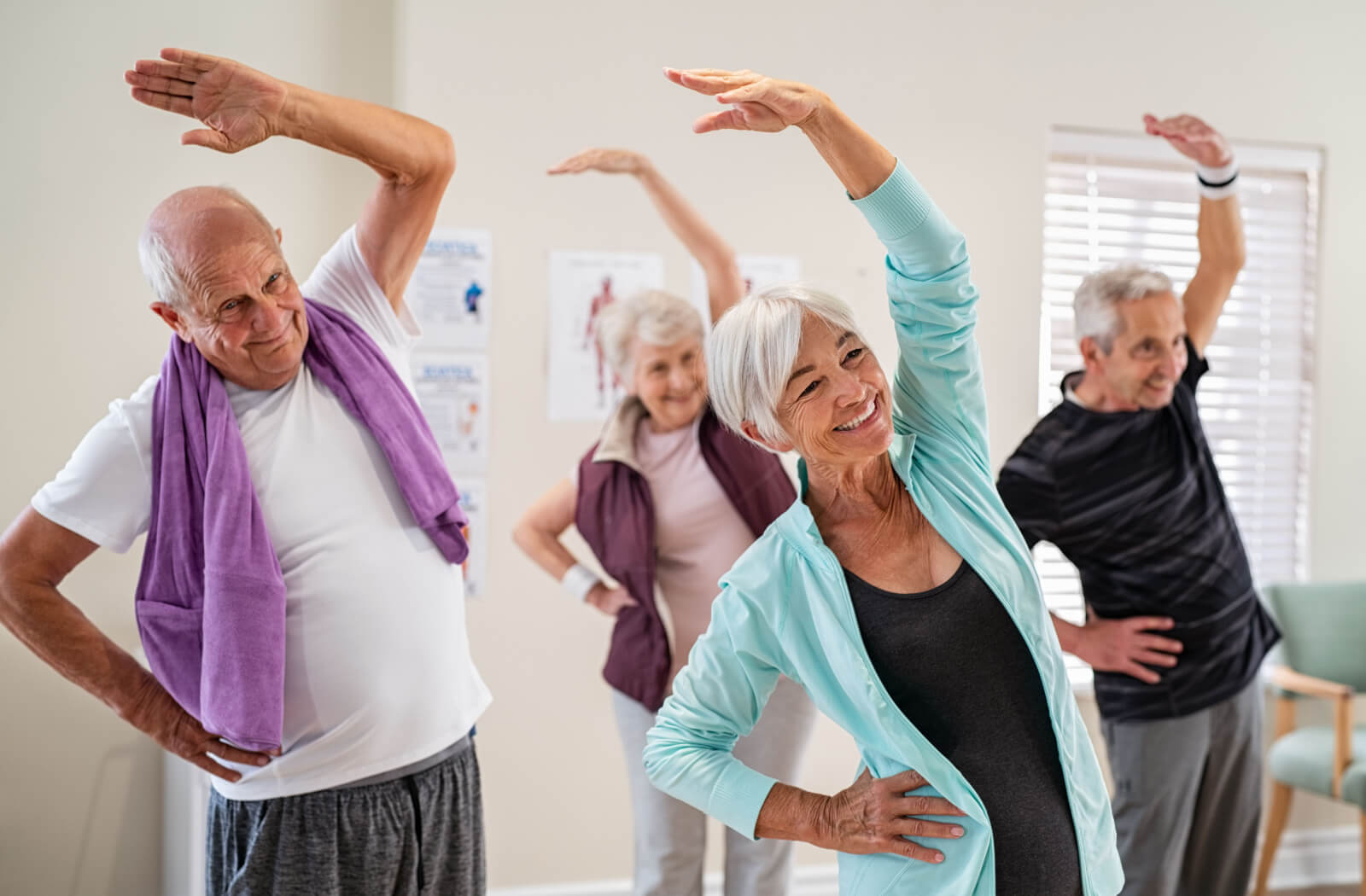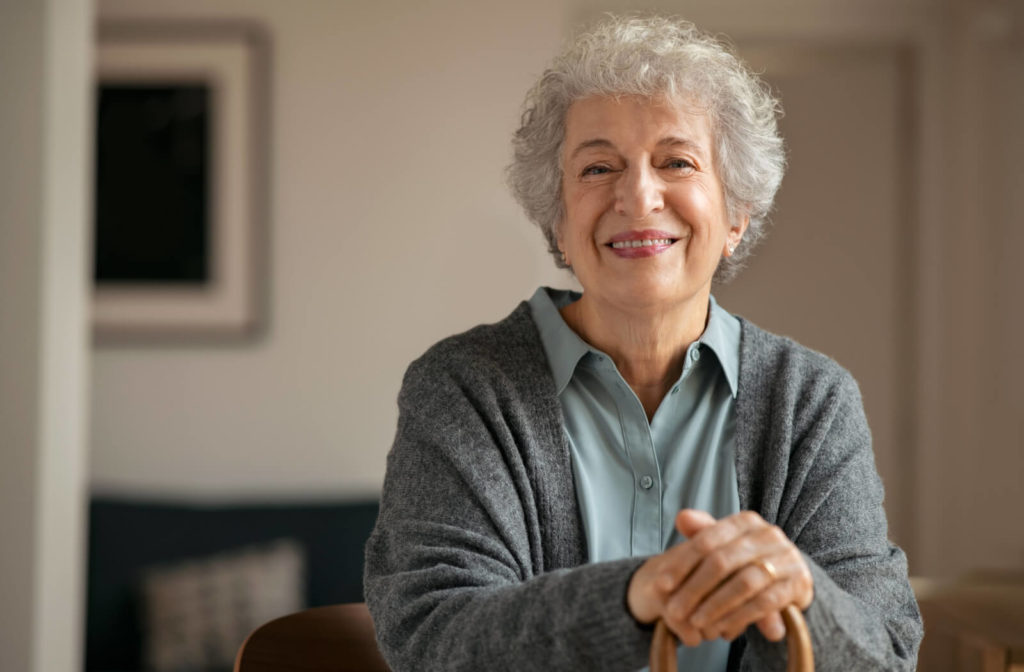Key Takeaways
- Extreme weakness in older adults can stem from medical conditions, medications, emotional changes, or lifestyle habits.
- Persistent fatigue lasting more than a few weeks should be evaluated by a healthcare provider.
- Regular physical activity, a balanced diet, and healthy sleep habits can improve energy and overall well-being.
- Tracking fatigue patterns and asking for support can help seniors manage energy levels and daily tasks more effectively.
- Assisted living communities, like Bentley Commons at Lynchburg, provide personalized care, wellness programs, and daily assistance to help seniors maintain independence and quality of life.
It’s not uncommon for older adults to experience fatigue or weakness, but extreme weakness can be a cause for concern. If fatigue is affecting your wellness and daily life, assisted living can help with the activities of daily living so you can maintain a quality life into your golden years.
There can be various causes for extreme weakness in older adults, such as medical conditions, treatment, and even what you eat. However, it’s important to understand the potential reasons and seek medical attention to help you feel less tired.
What Is Extreme Weakness?
Weakness or fatigue is feeling tired or lacking energy. Sometimes fatigue can come and go, like with physical activity or lack of sleep, where you feel better after resting or sleeping.
But other times, it can continue for weeks, indicating something more serious or underlying. There are 2 main types of fatigue:
- Physical fatigue: When you find it hard to complete things you normally do, like climbing the stairs, and can include muscle weakness.
- Mental fatigue: When you find it hard to concentrate and stay focused.
Symptoms of fatigue can include the following:
- Sore and aching muscles
- Lack of motivation
- Drowsiness during the day
- Difficulty concentrating or learning new tasks
- Gastrointestinal problems
- Headache
- Irritability or moodiness
- Slow response time
- Vision problems
Causes of Extreme Weakness in Older Adults
Extreme weakness or fatigue is usually the first sign that something may be wrong. It can result from many health conditions, medications, and lifestyle habits.
Physical fatigue can be caused by:
- Medical conditions
- Chronic diseases
- Infections
- Untreated pain
- Fibromyalgia
- Anemia
- Sleep apnea and other sleep disorders
- Recent stroke
- Parkinson’s disease
- Medical treatments, like chemotherapy and radiation
- Recovering from major surgery
- Certain medications like antidepressants, antihistamines, and medicines for nausea and pain.
- Chronic fatigue syndrome (CFS)
Emotional fatigue can be caused by:
- Anxiety
- Depression
- Grief
- Stress
- Loss of control
Lifestyle habits that can cause fatigue include:
- Lack of sleep
- Poor diet
- Too much caffeine
- Too much alcohol
- Too little or too much exercise
- Boredom
When to Visit Your Doctor?
Visit your healthcare provider when fatigue doesn’t dissipate for several weeks. Your doctor can diagnose fatigue by looking at your health (physical exam), medical conditions, medication you take, and lifestyle habits and asking several questions that pertain to your:
- Fatigue qualities
- Fatigue patterns
- Quality of sleep
- Emotional state
- Stress levels

Treatment for Fatigue
Treatment for fatigue in older adults can depend on your health, underlying medical conditions, and therapy to help alleviate the fatigue.
Exercise
Engaging in physical activity at any age can improve energy levels, appetite, strength, balance, and overall health. Exercises suitable for older adults can include activities such as walking, swimming, or yoga. A consultation with your healthcare provider can ensure you start an individualized exercise program based on your needs.
Good Sleep Habits
Good sleep habits can include going to bed and waking up at the same time, avoiding electronics before bedtime, and avoiding eating before bed. Long naps during the day can make it harder for you to sleep at night. Keep a sleep journal to monitor your sleep patterns.
Stop Smoking
Smoking and many diseases and disorders are all associated with fatigue.
Eat a Balanced Diet
A balanced diet can provide the nutrients needed to support energy and overall health throughout the day. Include a variety of foods from all the food groups.
Avoid Alcohol
Avoiding alcohol can help you avoid negative interactions with medications.
Activities
Activities that keep your mind and body active such as socializing with friends and family, learning a new skill, or volunteering, can make you feel more engaged.
Ask for Help
Older adults may find some tasks overwhelming. Asking for help and working with others can make it feel less tiring.
Keep a Fatigue Diary
A fatigue diary can track times when you feel more or less tired throughout the day. It can help your healthcare provider with fatigue patterns and help you plan out activities.
Life at Bentley Commons at Lynchburg
Extreme weakness in older adults can have multiple potential causes. However, there are steps you can take to promote your overall health and well-being. A healthy lifestyle, including physical activity, balanced nutrition, and good sleep habits, can help reduce your risk for extreme weakness. Contact Bentley Commons at Lynchburg or schedule a tour to see how our community focuses on personalized care, amenities, activities, and peace of mind to reduce the life stressors for older adults.



